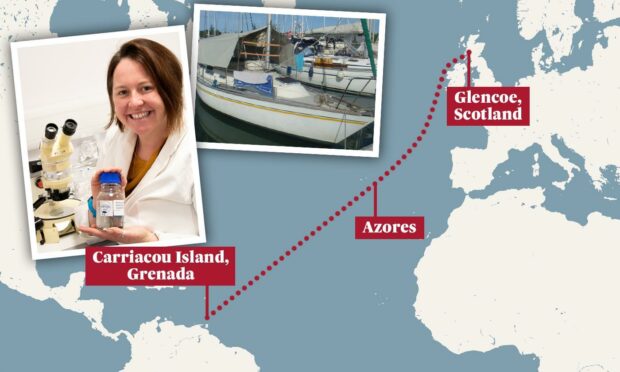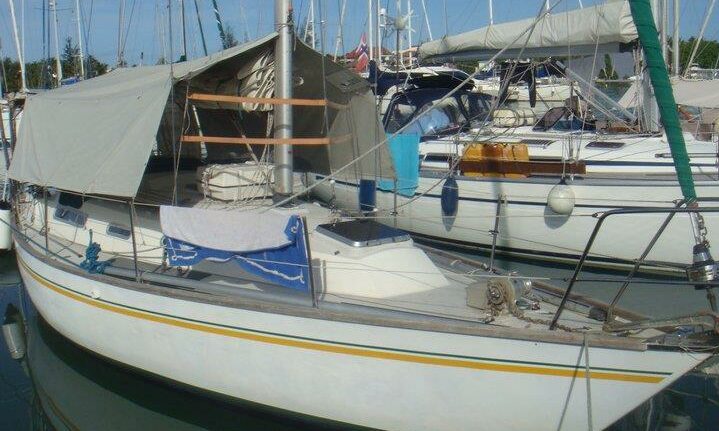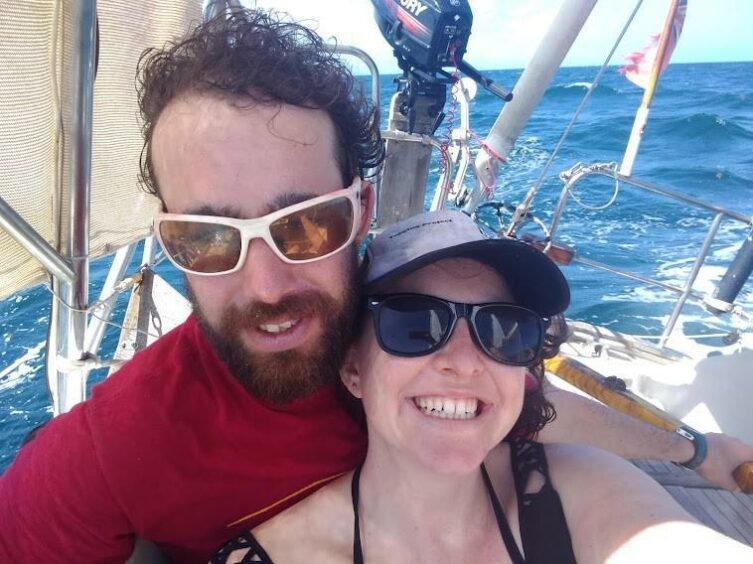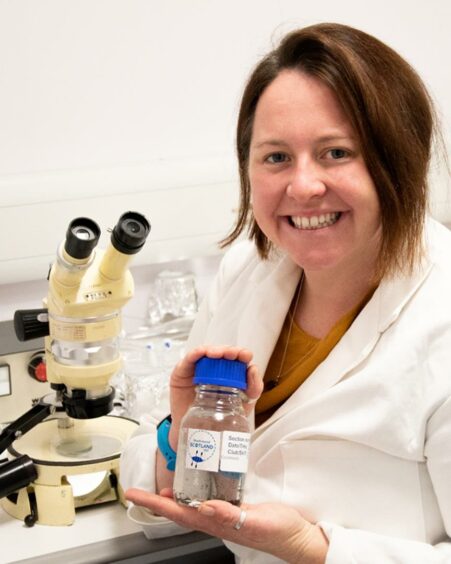A seafaring scientist will be taking samples from the ocean as she undertakes an emotional voyage home to Glencoe from the Caribbean.
Saz Reed, 29, plans to measure the extent of microplastic pollution from the deep sea to Scottish rivers.
The marine scientist inherited her yacht Cariad, a Sadler 34, from her sailing mentor Tony Meakin.
Venture will honour family friend
A friend of her father Steve, Tony taught Saz to sail and helped inspire her love of the ocean.
He died two years ago after a battle with cancer.
Saz is based at the Scottish Association for Marine Science (Sams) in Dunstaffnage, near Oban.
In mid-March she will set sail from Carriacou Island, Grenada. From Carriacou she will head to the Azores and then up to Scotland, via Ireland, swapping some crew along the way.
It is a challenging voyage in itself, but Saz will also be conducting experiments along the way. She has fitted various microplastic monitoring tools to collect data en-route.
She said: “My dad was friends with Tony for years and when I was about seven they bought a yacht together so they could build towards their Royal Yachting Association instructor’s ticket.
“Tony decided to go sailing around the world, so bought the yacht outright, but I did a lot of sailing with him on Cariad before he settled in the Caribbean.
“I think those early years of sailing and adventures at sea really forged my love of the ocean.
“Tony died two years ago and I was shocked to find out that he had left me Cariad in his will.”
Voyage will last around three months
Saz hails from Wales, where the word “Cariad” is used as a term of affection.
Having delayed the transatlantic voyage for two years because of the Covid-19 pandemic, Saz and her partner Al Docherty will refit the yacht in Carriacou before sailing it back to Scotland.
They expect to arrive home in May.
Saz leaves Scotland for Carriacou on Friday February 18.
Marine environment campaigning group Weswimwild has donated the sampling tools.
What will Saz be testing for?
Microplastics are man-made plastic particles and fibres less than five millimetres in size.
Marine scientists are investigating the extent of microplastics in the ocean environment and how they may be affecting the food chain, as small creatures can feed on these particles.
Saz said: “I can’t go across the Atlantic without measuring something scientific.
“Fortunately, I sampled microplastics in the River Coe for Weswimwild last year, so by bringing Cariad back from the Caribbean to Glencoe we are going from sea to source.”
She will also be noting down sightings of marine debris and any marine mammals she encounters on her way.
“The data will hopefully help us build a picture about the extent of microplastic pollution and allow us to examine the interactions between our coastal rivers and the open sea,” she said.
People can follow the transatlantic voyage by visiting the following link: https://forecast.predictwind.com/tracking/display/SV_Cariad/ .
Saz has also been working on a citizen science project with the Scottish Coastal Rowing Association to sample microplastics in Scottish waters.
Microplastics trawl
The association’s RowAround Scotland event saw the 70 member clubs row in a relay around the Scottish coastline. Most towed a microplastics trawl to sample the waters in their local area.
Saz is now analysing these samples to assess microplastic abundance in waterways around the coast of Scotland. However, there is a need for more research on the topic.
Scottish coastal waters are important breeding and foraging areas for a wide range of marine species. Scientists are keen to learn more about microplastic distribution in them.



